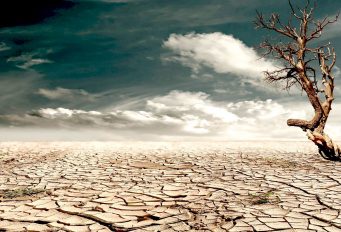![]() 4 minute read
4 minute read
Half a century ago, Rachel Carson became the mother of environmentalism by publishing a book Silent spring.Silent spring that revealed the details of the ways human harms the nature. The content of the best-seller has influenced the creation of the movements, times radical ones, to protect the Earth. This article looks into the development of the environmentalism, its pros and cons, and, finally, the future of the ideology. In brief, the movement will exist as long as there is green grass behind the window.
Not a hobby
Not an interest
As Sir David Attenborough puts it, “Environmental issues is not an interest, but an obligation.” Environmentalism concentrates on what harms the planet and, eventually, harms humanity, which usually goes another way around. The main questions are the global warming, overpopulation, genetic engineering. Throughout the time, the movement has formed different schools like free market, evangelical, preservation and conservation. The approach of the activists has caused controversial opinions and claims against the ideology. Nevertheless, today, the environmentalism is developing and evolving gaining the popularity. Besides being fashionable and trendy, ideology gets support from patrons like Bill Gates and Leonardo Di Caprio. Polishing the corners, the environmentalistic approach becomes more formed and structured. The increasing amount of the researches conducted on the environmental issues contributes in the better, ideal system.
One of the theories is that environmentalism has occurred and grew due to informationalism. And this statement is hard to argue. The information access and exchange withing the whole world gave an opportunity to see the patterns and recognize the size of the volume of global warming problem. Moreover, the global connectivity influenced raising awareness of the climate change, growing consumer needs, and destructful human habits. So what can be a way out?
Personal impact
on the planet’s
wellbeing
The technical solutions alone cannot be expected to solve the environmental problems, as it was not the technology alone that triggered the climate change, for example. The problem sits deeper in the everyday human habits. The roots of the issue lay down in the consumers short-term utility maximization approach. This approach led to the vanishing of rainforests and overfishing of the oceans. The human population and every person have to recognize the personal weight in the changes and take the responsibility to the planet. There are numerous sustainability attempts in the world to shift consumer habits, like having quick showers, turning off the light when leaving the room. At the same time, there are automatized systems to help people to save energy and other resources. But those methods alone are not enough. Environmentalists argue that the entirely new approach has to be born. And it is:
Circular
economy
Imagine the world which has no waste. The industry and manufacturing utilize the end product as the resource after its usage. The idea is to put the question of what happens with the product after it has been used and find the solutions where the goods are not being sent to the landfill. But the issue does not end with the manufacturing. “Human population growth and per-capita consumption rate underlie all of the other present drivers for a global change…” claims article in the Nature journal 2012. The population growth and consuming ability shift from poverty to middle-class modify the way people consume goods. New environmentalism contends that in the circular economy there is the rise of the consumer responsibility and shift towards smart consumption. By 2050 the demand on resources will triple with up to 70% growth in food, fiber and feed consumption. New environmentalism is for the solutions to come from the population, from each and one of the human, and up to politics and overall sustainable development.
Daugther
Nature
Moreover, the attitude to treat the nature and the planet as the life organism and the neighbor human cares about. It might be the time to stop treating the nature as a mother who will look after human but treat planet as a child investing in its wellbeing. This approach has given birth to Environmental Health Clinic in NYU. xClinic is the first environmental lab where people come with the environmental disease and get the step-by-step prescription to fight the illness. “The Environmental Health Clinic (xCLINIC) develops and prescribes systems that improve local human and environmental health,” says the labs website. Today, the clinic operates and designs urban infrastructure all around the globe, namely in New York, Toronto, Boulder, Singapore, Penang, Chesterton, Melbourne, Vermont, Mauritius. Let the artist, engineer and the founder of the lab tell about the project herself:




